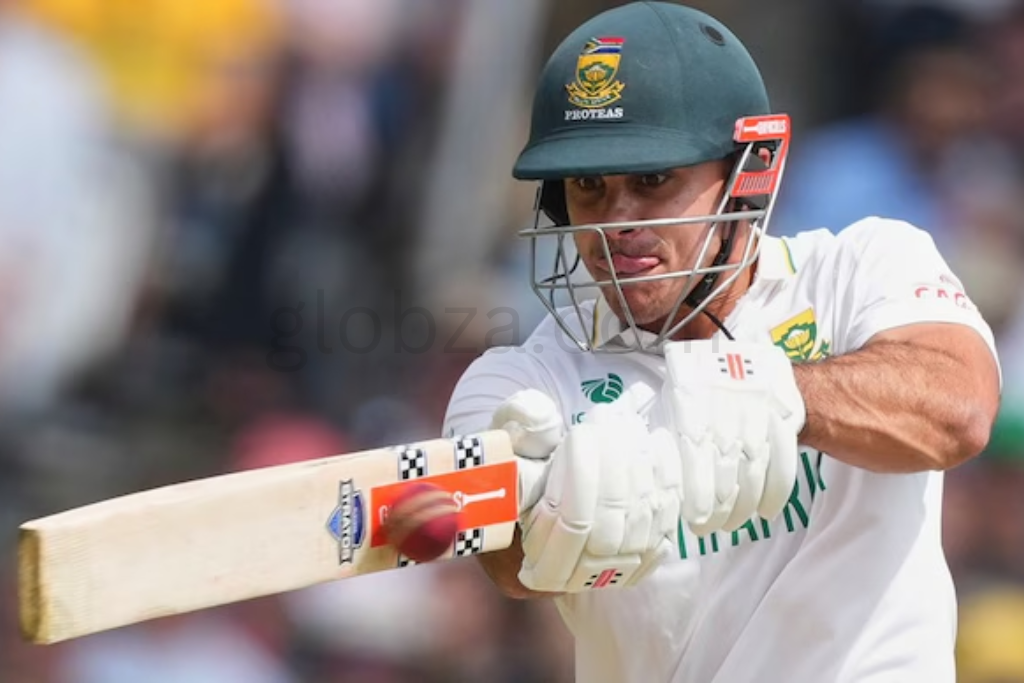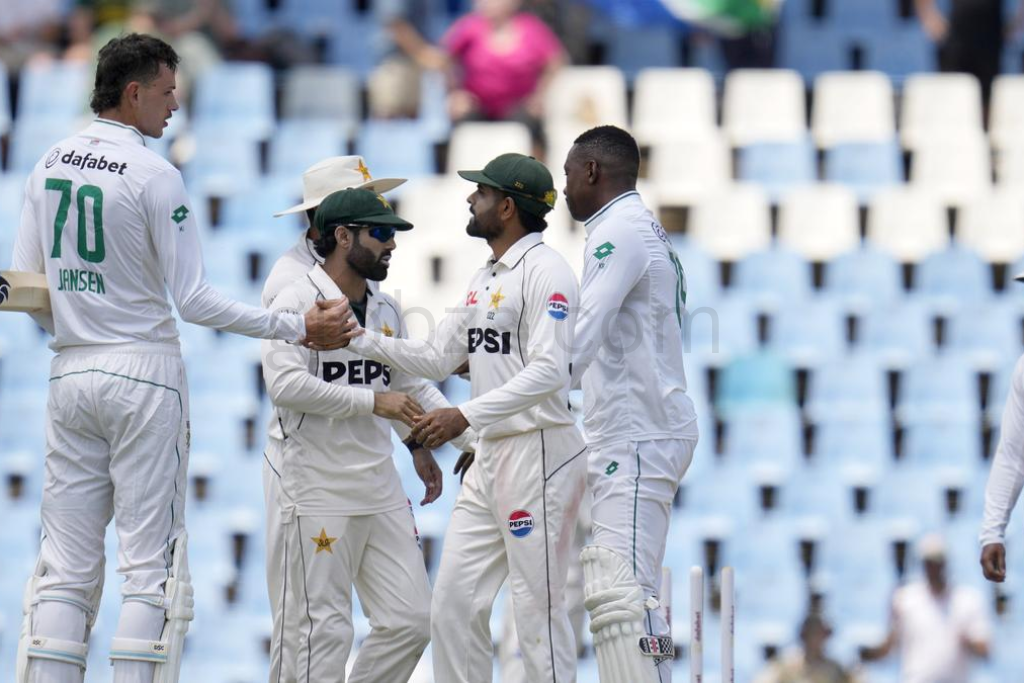In one of the most defining moments in modern cricket, the South Africa cricket victory has electrified fans across the globe. More than just a scoreline, this monumental achievement is a testament to the grit, spirit, and unshakable belief that has come to define South African cricket. The world watched as the Proteas pulled off what many called an “impossible” result—a win that showcased not only talent but deep-seated confidence.
“We believed, even when others didn’t. That belief carried us.” — Temba Bavuma, South African captain
This blog explores how belief, strategy, and leadership converged to make the South Africa cricket victory a landmark moment. From years of heartbreak to a new era of confidence, this is the story of a team rewriting its legacy.
South Africa Cricket Victory: Building the Foundation Through Near Misses and Belief
The South Africa cricket victory didn’t happen overnight. For decades, the team was haunted by missed opportunities, World Cup heartbreaks, and a painful “chokers” label. However, behind the scenes, a quiet revolution was unfolding—one that emphasized mental strength as much as physical preparation.
The victory represents a transformation. Years of planning, investment in sports psychology, and grooming a new generation of mentally tough cricketers finally paid off. Under coach Rob Walter, players were trained to believe in the process, not just the result. The team emphasized building an unbreakable mindset, which played a crucial role in the South Africa cricket victory.
“You don’t win by hoping. You win by preparing, believing, and pushing beyond limits.” — Mark Boucher, former head coach
Senior players like David Miller and Quinton de Kock nurtured emerging stars like Marco Jansen and Tristan Stubbs, ensuring a blend of maturity and hunger. Team retreats, reflective journaling, and a culture of honest dialogue fortified their mental framework.
This shift is not just visible in the stats—it’s seen in how players carry themselves, how they respond to pressure, and how they talk about each other. The South Africa cricket victory symbolizes the triumph of belief over baggage, of a team rewriting its script with every over.

Matchday Magic: Turning the Impossible into a South Africa Cricket Victory
The day of the historic victory was more than just a cricket match—it was a theatre of resilience, character, and execution. From the toss to the final over, every decision made by the South African squad reflected meticulous planning and unshakeable confidence. This wasn’t a fluke win; it was the result of calculated risks and nerves of steel.
Batting first, the team posted a defendable total despite early setbacks. Quinton de Kock, with his trademark aggression, laid the groundwork, while Rassie van der Dussen anchored the innings with poise. In the death overs, Miller’s explosive finishing provided the crucial boost. South Africa didn’t just post a score—they set a challenge.
“We always knew that defending the total was possible if we backed our bowling unit.” — Mark Boucher, former coach and current cricket analyst
The second innings was where the belief truly shone. Facing one of the most powerful batting lineups in the world, South Africa turned to its pacers and spinners with a plan tailored for every batter. Kagiso Rabada’s fiery spell broke the top order, while Tabraiz Shamsi’s crafty turn baffled the middle overs. Jansen’s nerveless final overs closed the game with surgical precision.
Field placements were aggressive, and the body language never wavered. Even when the opposition threatened a comeback, South Africa refused to retreat. Each player’s commitment to the plan, to each other, and to the belief that victory was theirs made all the difference.
Proteas Heroes Who Defined the South Africa Cricket Victory
South Africa’s victory was a team effort, but certain individuals stood out as beacons of belief and execution. Their stories reveal not just technical brilliance but emotional journeys that make this triumph even more inspiring.
Temba Bavuma led from the front, not always with the bat, but always with presence. His calm demeanor, tactical intelligence, and unifying spirit were instrumental. He often spoke about rising above doubt—both external and internal—and this win was validation of that vision.
“I’ve had to fight harder than most. But every setback made me stronger. This win is for every South African who ever felt underestimated.” — Temba Bavuma
Quinton de Kock, in what could be his final major tournament, played with the freedom of a man on a mission. His aggressive strokeplay and adaptability were key in setting up strong starts.
Kagiso Rabada, always a pillar of strength, brought raw pace and emotional fire. He bowled like a man possessed, lifting his team when it mattered most. His leadership within the bowling unit was invisible but invaluable.
David Miller quietly reinforced why he’s one of the best finishers in the game. More than that, his experience and composure under pressure were a calming force during crunch moments.
These players, along with a deep bench of all-rounders and specialists, gave South Africa a multidimensional edge. More importantly, they played with belief—not arrogance, not desperation, but genuine belief that they belonged at the top.
Tactical Brilliance That Powered the South African Cricket Win
Belief alone doesn’t win matches—strategy does. What made South Africa’s performance truly “amazing” was how seamlessly belief translated into action. Every decision seemed backed by data, instincts, and an intimate understanding of opposition weaknesses.
Before the match, the team held scenario-based sessions—simulating various challenges, including what to do if they lost early wickets or how to defend a low score. These sessions weren’t just technical—they were psychological conditioning exercises that equipped players for chaos.
The field settings reflected an aggressive mindset. Bavuma wasn’t afraid to put catchers in for key batters, trusting his bowlers to hit the right areas. Bowlers weren’t rotated just by overs but by matchups. When a spinner looked more threatening to a particular batter, the captain backed him regardless of conventional patterns.
“Our strategy was to stay unpredictable. Cricket is a mind game, and we played it beautifully.” — Tabraiz Shamsi
South Africa’s use of data analytics and psychological profiling gave them a deeper edge. They didn’t just prepare to play—they prepared to outthink. It’s this cerebral, chess-like approach to cricket that elevated them above the pack and turned belief into a blueprint for victory.

Symbolism of the Proteas’ Triumph: What This Cricket Victory Means to South Africa
For South Africa, this win was more than a notch on the scoreboard. It was a cultural moment, a collective exhale after years of near-misses and heartbreaks. In a country still healing from inequality, division, and sporting trauma, the win became a metaphor for transformation.
Young fans watched heroes emerge who looked like them, spoke their languages, and wore their pride on their sleeves. For the nation, this cricket victory became a mirror reflecting possibility, not just in sports but in life.
“This team made us believe again—not just in cricket, but in ourselves as a nation.” — Makhaya Ntini, former South African fast bowler
Sponsors, media, and governing bodies have already seen the ripple effects. Increased youth engagement, better funding opportunities, and a surge in cricket viewership point toward a reinvigoration of South African cricket’s ecosystem.
Most importantly, the victory silenced doubt. For the players who were often overlooked, for the fans who had lost hope, and for a system that needed rebirth—this win planted seeds of new possibilities.
Conclusion: A New Chapter in South African Cricket
South Africa’s cricket victory was not just a match result—it was a movement. Built on belief, executed through strategy, and crowned by a symbolic resonance that transcends boundaries, this win will be remembered for generations. More than records or trophies, the legacy of this moment is its power to inspire.
“We didn’t just win a game. We changed the story.” — South African Team Statement




